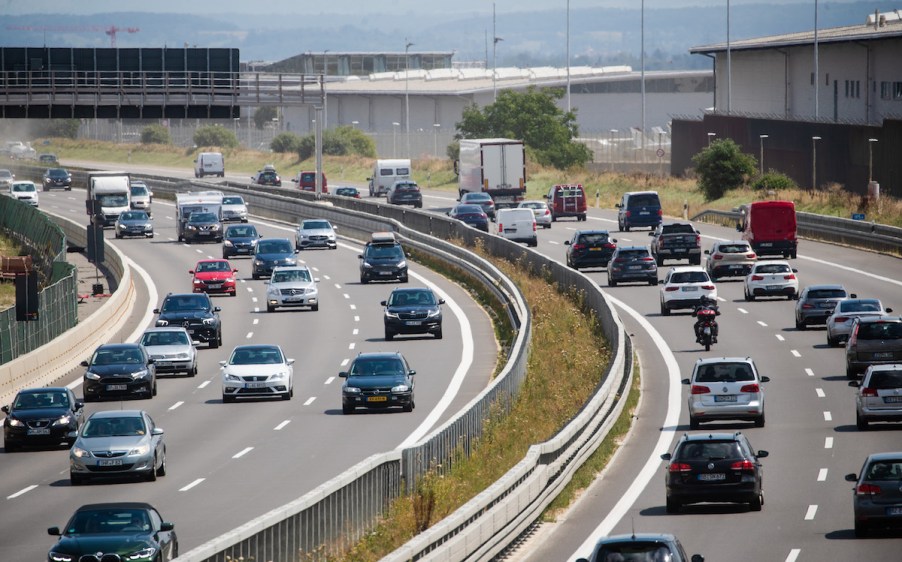
Aggressive Driving Usually Includes These 6 Offenses
The National Highway Traffic Safety Administration (NHTSA) defines aggressive driving as when an individual commits a combination of moving traffic offenses to endanger other persons or property. While driving can be a relatively simple affair devoid of avoidable incidents, not everyone is a stickler to the rules. Some drivers engage in bad driving habits, some of which constitute aggressive driving. Here are some of those offenses that amount to aggressive driving.
1. Following too closely
According to Access Insurance, following another car too closely is an offense classified as aggressive driving. According to Cision, although tailgating may seem harmless, it is partly responsible for rear-impact crashes—the second most common type of car crash. Driving too close eliminates the distance required to stop safely without crashing into the vehicle ahead of you.
Tailgating at high speeds can cause serious accidents that lead to severe injuries. Traveling at low speeds can damage your car and still cause minor injuries.
2. Not using signals or caution when changing lanes

When about to change lanes, you should use a turn signal as it gestures to other drivers on the road to slow down, create space, and maintain a safe distance. Failure to use your blinker to signal other drivers of your intent can lead to a crash, as they will not indicate your plan to drift over. They will therefore be forced to brake suddenly, which could cause a multi-car accident.
3. Running a red light
We live in a busy world, and understandably, you might feel impatient when in a rush. However, running a red light could have lifelong consequences while fleetingly convenient.
Accidents occasioned by running a red light at intersections usually lead to “T-bone” collisions, in which the front side of a car hits the side of another. These collisions can cause severe injuries and instant fatalities, given the minimal buffer on a car’s side.
You are, therefore, better of arriving a couple of minutes late to your destination than risking involvement in a severe car accident that could have fatal consequences.
4. Improper passing
It can be frustrating to drive behind a slow-moving vehicle. In such instances, there is an urge to overtake the slow driver and proceed hurriedly to your destination. Improper passing involves overtaking when it is not safe to do so.
Some instances of improper passing include overtaking where there is poor visibility, maneuvering when you are too close to an oncoming vehicle, not signaling your intent to overtake, and overtaking in areas where such a habit is not permitted, like passing double solid lines.
5. Speeding
Exceeding the speed limit is an aggressive driving habit that puts you and other road users at significant risk. Sometimes, driving below the posted speed limit can be considered speeding when the conditions do not allow it.
You should slow down anytime you feel you are going faster than you should. Maintain a reasonable pace when driving to your destination because when speeding, you risk losing control of your vehicle and reducing your reaction time when responding to perceived danger. The severity of a crash also increases when you are speeding.
6. Failure to yield
Yielding the right-of-way maintains order and prevents accidents in sections of the street where traffic is merging, crossing paths or pedestrians are crossing roadways.
Right-of-way laws vary by state and depend on the type of intersection and the signs and lights available at that intersection. Proper knowledge of when to yield the right-of-way will save you from committing traffic infractions.
Potential consequences of aggressive driving
Other than endangering your life and that of other motorists and pedestrians, aggressive driving is a traffic offense that could earn you a fine and possibly jail time. Engaging in the offense may also lead to a revocation of your driving privileges. Insurers may also classify you as a risky driver and charge you higher premiums. In instances where the offense has caused an accident, your insurance company can also choose not to cover you any longer, especially if you are a repeaat offender.


